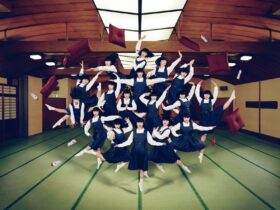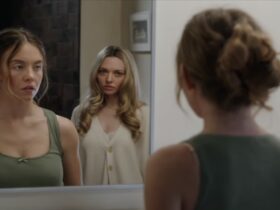The Singaporean director reveals: “Pop Aye took a lot out of me”
By Samantha Francis & Pamela Chow. Photos: Golden Village
It’s been a phenomenal year for filmmaker Kirsten Tan. Not only was her spotlighted film, Pop Aye, awarded at the International Film Festival Rotterdam; it was also awarded the Special Jury Prize in Screenwriting at the Sundance Film Festival 2017 – making her the first Singaporean to compete and win an award at Sundance.
After bagging these bragging rights, Tan held an intimate discussion with fans of Pop Aye at the Blog Aloud session hosted by Golden Village. She will also be joining a team of mentors for aspiring filmmakers under 20/20: The Temasek Short Film Project.
Catching up with Tan after her mean feats, Weekender picks the brain behind the silver screen.
Hi Kirsten! What have you been up to lately?
Since we officially completed Pop Aye, I actually haven’t had the chance to take a break. I’ve been attending film festivals and trying to get word out about the film.
I’ve also just finished shooting two recent projects: A film set in Portugal as part of a campaign for a major fashion label, and the other one, a Teochew opera-inspired short film done in collaboration with Royston Tan’s Chuan Pictures.
I am appreciating the whirlwind ride that’s taken place since Pop Aye but I’m certainly also looking forward to a long vacation!
Tell us more about the story behind Pop Aye.
I lived in Thailand for two years and a lot of the moments and characters in Pop Aye are taken from my observations of life while I was there. A huge part of it also comes from my take on existence.
Pop Aye as a film took a lot out of me. It was really a challenging film to put together and if you watched it, maybe you can see the effort my team and I spent on it.

Is there a character with whom you identify the most?
I identify with both Popeye the elephant and Thana the architect. Both of them are very much displaced from their respective societies – Popeye is forced out of his natural habitat to live among men whilst Thana is slowly becoming irrelevant at work and at home.
While my circumstances aren’t quite as extreme as theirs, a part of me always feels for outsiders because I consider myself quite a misfit growing up.
What do you hope the audience will take away after watching Pop Aye?
I hope audiences will feel the inescapable forward motion of time and the bleak humor of our everyday existence.
How do you feel about being the first Singaporean to win an award at Sundance?
I am always proud to represent Singapore on the global arena because Singapore’s a tiny nation and really under-represented in the fields of arts and culture. Winning an award at Sundance [is] a really rare and precious honour.
When I make films, I create on a gut level and until I play it to an audience, I never really know what to expect. To even get into Sundance is already a cause for celebration; winning there feels absolutely shocking, even surreal.

What will this mean for your career as a filmmaker?
A part of me feels a hint of relief because that means a second feature film is now within reach. These wins are not simply personal validations; they also represent an opening to create more works on different platforms.
How did your journey as a filmmaker begin?
On a personal level, I’ve always loved films since a young age – though I’ve to say that filming as a career in a pragmatic place like Singapore feels quite impossible, even now.
Making films requires full-time commitment and there is no easy way out. Since film-making’s also a relatively young industry here, a lot of time is spent on my own figuring out how to make this dream possible.

Any exciting new works in the pipeline for you?
For now, I think I will need a tiny break where I work on shorter form projects before I start writing my next feature film. Though I have some ideas brewing in my head as we speak.
What advice can you share with aspiring filmmakers?
There’s really no magic formula when it comes to film-making. So much of it is dependent on hard work and the right opportunity. The opportunities will come eventually but you have to be ready.
If you take the analogy of surfing, you have to prepare yourself well and it may take years to train yourself up. So in that moment you eventually swim out to sea and a perfect wave hits, you won’t be drowned by it, but ride it gracefully.
ADVERTISEMENTS











Leave a Reply